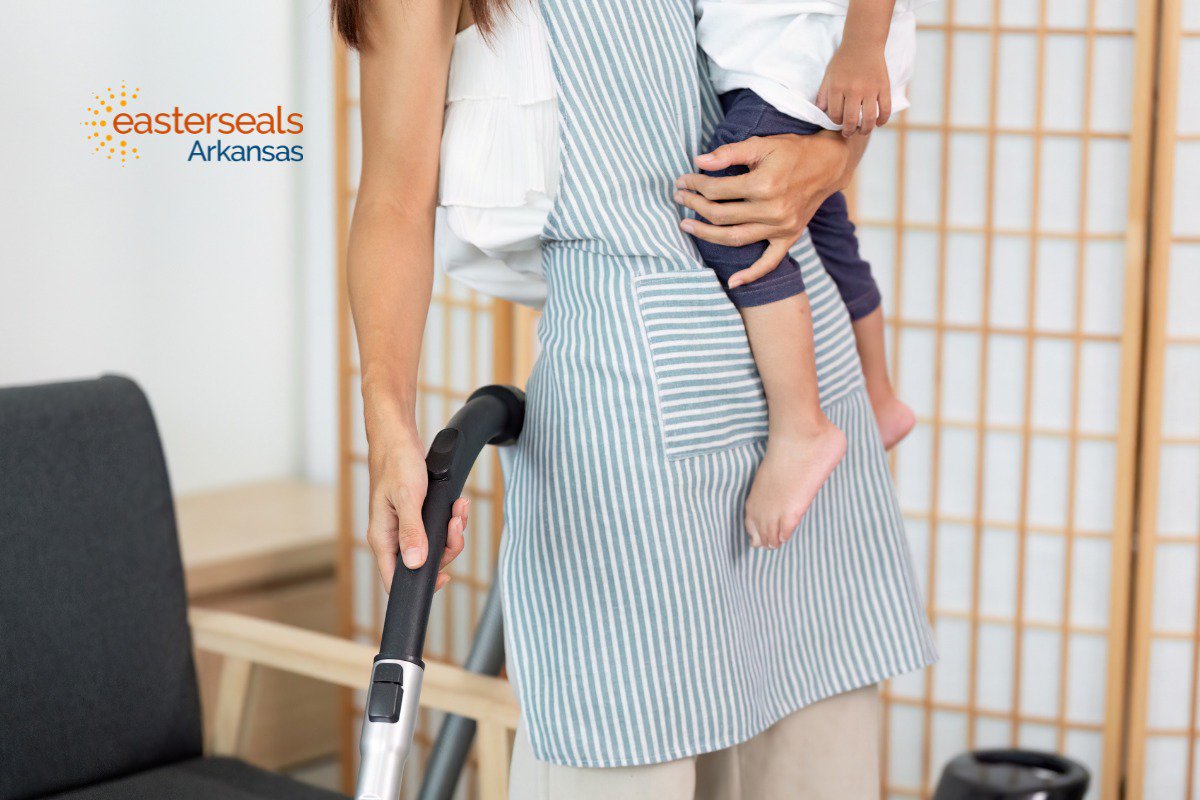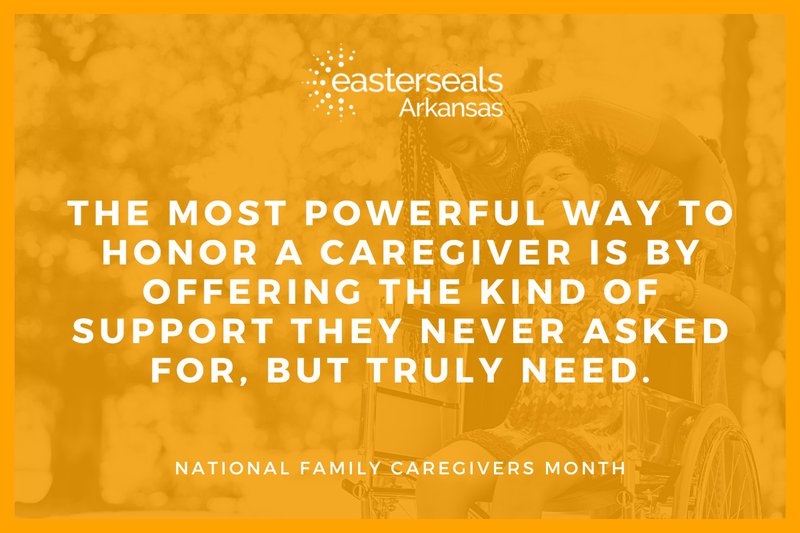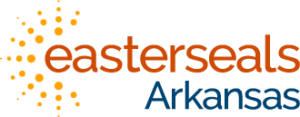
Every day, caregivers of all kinds give their hearts and their time to people who need it. Each November, National Family Caregivers Month honors their strength, love, and commitment. This month reminds us to wholeheartedly thank these caregivers. If you care for someone with a disability, this is your time to be seen. Learn below why this month matters and how it can lift you up as a family caregiver.
Key Takeaways:
- The U.S. observes National Family Caregivers Month each November to honor over 50 million unpaid caregivers.
- The Caregiver Action Network was introduced in 1994
- November was chosen to align with Thanksgiving and the focus on family.
- The 2025 theme is #ICare, emphasizing visibility, dignity, and support for caregivers.
- Events for the month include wellness days, thank-you gifts, and community recognition.
- Military caregivers face challenges like PTSD, TBI, and navigating healthcare systems.
- Support tools include online guides, local programs, and mental health resources.
- Popular hashtags: #NFCMonth, #ICare, #CaregiverStrong.
The Significance of National Family Caregivers Month
National Family Caregivers Month takes place each November in the United States. It honors more than 50 million people who care for a sick, aging, or disabled loved one. These family caregivers help with meals, medicine, and daily tasks, usually without any pay. They do it out of love. Dedicating an entire month to caregiver recognition allows those in caregivers’ lives to see the challenges caregivers face. It gives others a closer look at the many duties of caregivers.
National Family Caregivers Month encourages people who know or love a caregiver to give thanks and support. Caregivers often feel exhausted, stressed, or overlooked. The month was created because these caregivers deserve recognition for all they do to help others. The first National Family Caregivers Month began in 1994, launched by a group now called the Caregiver Action Network. In 1997, President Clinton signed the first proclamation.
Celebrating National Family Caregivers Month
Family caregivers give their time and care every day, and National Family Caregivers Month gives them a chance to receive some care from others, too. This month is more than a date on the calendar: it’s a growing cause. It invites families, schools, and leaders to show continued support for caregivers.
Popular Caregiver Appreciation Activities and Events for November
Caregiver appreciation events in November include:
- wellness days
- thank-you gifts
- free programs
Communities often plan events that honor caregivers. For example, some towns offer yoga, food, and massage therapy events. These activities remind caregivers to care for their own well-being.
Libraries and schools may hold art shows or readings featuring caregiver stories. At work, some employers provide extra time off or schedule support talks. These efforts help caregivers feel seen and appreciated.
Local TV stations also join in by airing caregiver stories or interviews. These moments spotlight the important work caregivers do every day.
How Communities and Workplaces Recognize Caregivers
Some neighborhoods use online forums to share and organize local caregiver celebration ideas. In one Florida town, a week of events called "Hands That Care" included free child care, meal deliveries, and movie nights.
Schools may ask students to write about someone who takes care of others. These letters are often sent home in surprise gift packages as heartfelt tokens of gratitude.
Businesses support caregiving employees by setting up helplines or adjusting schedules. Some offer awards, create peer groups, or share helpful resources.
Creative Ways Individuals or Groups Can Honor Caregivers
Think about what the caregiver in your life could really use. It might be time off, a meal, or some quiet time. Offering to handle their caregiving for the day can provide real relief.
Families sometimes show appreciation by cooking, cleaning, or managing the mail for a week. Children often make cards or draw signs saying, “Thank you.”
Local organizations may read messages during service or give small gifts. Others partner with nearby centers to hand out grocery or coffee gift cards.
More ideas include:
- Filming a thank-you video from friends and family
- Creating surprise baskets with relaxing items or favorite snacks
- Making a thoughtful personalized music playlist
Need more ideas? The Caregiver Action Network has free templates, guides, and media tools.
The most powerful way to honor a caregiver is by offering the kind of support they never asked for, but truly need.
Official 2025 Theme for National Family Caregivers Month
The 2025 theme for National Family Caregivers Month is “#I Care…” This message elevates caregiver voices and invites others to see what being a caregiver is like.
When a caregiver says “I care…”, it might mean:
- “I care for my father, who no longer walks.”
- “…and I need support.”
- “…and I want to be heard.”
Each person’s story matters. Helping someone every day deserves public respect. This theme also helps shape our communities to better support caregivers, especially after the month has passed.
Groups like the Caregiver Action Network and the National Council on Aging look at caregiving needs and choose a theme that fits the moment. These themes connect public messages to real issues and bring attention to caregivers' daily lives. Each year’s message encourages unity. In 2025, #ICare shows care as daily love in action and calls others to respond. Some past themes include:
| Year | Theme | Explanation |
|---|---|---|
| 2016 | “Take Care to Give Care” | encourages caregivers to protect their health |
| 2017 | “Caregiving Around the Clock” | highlights caregiving’s constant demands |
| 2018 | “Supercharge Your Caregiving” | recognizes caregivers are heroes who also deserve the right tools to provide care |
| 2019 | “#BeCareCurious” | asks caregivers to ask questions about new resources and support |
| 2020 | “Caregiving in Crisis” | acknowledges how the pandemic brings even more challenges for caregivers |
| 2021 | “#CaregiverAnd” | celebrates the wholeness of caregivers’ lives, including passions and hobbies |
| 2022 | “Caregiving Happens” | reminds us that care can become part of life anytime |
This theme gives groups a shared way to connect their messages and public events. Organizations can use “#I Care…” in signs, posts, and events. A support group might ask members to share their care stories. A clinic could post, “#I Care about relief for caregivers” online. Faith groups can hold special services to say, “#I Care, and we support you.”
Caregivers and Their Work in Families and Communities
Caregivers take on many roles. Many cook meals, clean homes, help with bathing and dressing, and manage medicine. Some support doctor visits, handle paperwork, manage finances, and handle medical equipment or mobility aids. Beyond the practical ways these caregivers support their families, they also offer emotional care and comfort.
Most do this without pay. They step in where healthcare does not. Often, families rely on them instead of paid staff. This helps people remain at home instead of entering care centers.
Caregivers support healthcare systems and lower care costs by reducing the need for high-cost institutional care. Their work saves hospitals money and opens space for those with immediate needs.
In small towns with few services, caregivers are core to keeping families whole. With help from groups like the National Institute of Mental Health, they learn to face tough challenges and build stronger homes.
Support and Resources Available for Caregivers in November
National Family Caregivers Month offers caregivers chances to find guidance and support systems in many forms.
Organizations and Programs in Support of Caregivers
Support is available through hospitals, community groups, and neighborhood networks. Some areas offer group meetings, online meetups, or rest breaks. Caregiver support networks allow people to share ideas and feel understood.
Wellness programs help with stress and well-being. Some provide massage, stretches, or quiet spaces. Many offer activities and tips at no cost.
Local senior centers and clinics often have information about nearby sessions.
Caregiver-Focused Toolkits
Another valuable resource for caregivers are toolkits. Toolkits guide caregivers through everyday duties. Some address legal tasks or health visits. One toolkit compares family caregiver roles with those of direct support professionals.
Resources from the National Institute on Aging teach how to:
- Talk with doctors
- Track medications
- Keep medical records
- Have important conversations about future care
Special toolkits exist for those caring for family members with dementia or mental health conditions; they can range in topic from specific conditions like Tardive Dyskinesia to institutions and legal topics like HIPAA.
Each November brings announcements of new resources. In 2024, $145 million in federal funds supported new services like:
- Skills training
- Temporary care breaks
- Personal coaching
A recent care order outlined by the President expanded aid for military families, seniors, childcare systems, and home helpers. It pushes for better pay and more leave time. The first National Strategy to Support Family Caregivers was launched as part of this progress. It involves many partners working together long-term. Council websites and advocacy groups share the latest with the public.
November brings attention to caregivers and spotlights good changes across the country.
Expressing Gratitude and Appreciation to Caregivers
Show appreciation by speaking from the heart. A short note or a kind message can make someone’s day. “You help my mom feel safe,” or “You made a hard moment easier” can change how someone feels about their work.
Simple words matter:
- “You make hard days easier.”
- “You bring peace to our home.”
- “Thank you for always showing up.”
These honest messages mean more than any speech.
Quotes can express what we can’t always say. Here are some that speak to caregiving:
- “To care for those who once cared for us is one of life’s greatest honors.” from Tia Walker
- “The closest thing to being cared for is to care for someone else.” from Carson McCullers
- “You are doing sacred work.” from Anonymous
- “It always seems impossible until it’s done.” from Nelson Mandela
- “Caregiving often calls us to lean into love we didn’t know possible.” from Tia Walker
Use them in a card, email, or text. Let caregivers know their love is seen.
If you want to offer something besides a kind message, know that time and consideration mean more than gifts. Some ideas include:
- Grocery or meal gift cards
- Cozy blankets or socks
- A writing journal or coloring book
- A massage gift card
- Herbal tea or a reusable water bottle
- Paid housecleaning
- “I’ve Got This” coupons for tasks
Best of all? Show up for them. Watch their loved one for a few hours. Do the dishes. Handle some calls. Support in action matters most.
Using Social Media and Digital Tools to Amplify Caregiver Recognition
Social media gives voices to those often left out of the spotlight. Take advantage of these top hashtags for National Family Caregivers Month:
- #NFCMonth
- #NationalFamilyCaregiversMonth
- #ICare
- #FamilyCaregiver
- #CaregiverStrong
If you want to run an effective social media campaign, start with a goal, like thanking caregivers or sharing facts. Use images and headlines to keep posts clear. Video clips often connect most.
Change your banner to support caregivers. Feature one caregiver story each week. Ask your staff or community to share posts.
To make posts, use photos of caregiving moments. Post quotes or quick stories. Share facts:
- “Over 53 million Americans provide unpaid caregiving.”
- “Most caregivers juggle full-time jobs, too.”
- “25% of caregivers have debt due to caregiving.”
Use the 2025 theme: #ICare. Encourage others to post why they care. Offer resources, kindness, and support through each post.

Make the Most of National Family Caregivers Month 2025
National Family Caregivers Month honors love in action. From helping hands to social posts, from policy changes to personal messages, this month asks us all to speak up for caregivers. With this year's theme, #I Care…, we’re reminded to listen, lift, and offer help. Caregivers make life possible for everyone else through their love.
A Kind Word to Caregivers from Us
At Easterseals Arkansas, we know providing care for a loved one with a disability is one of the most impactful roles a person can take on. No matter what your life as a caregiver looks like, we admire and appreciate your work and your dedication. Know we see you and the impact you make.
We would love to make an impact by sharing our trusted programs, personalized support, and expert guidance with the caregivers we appreciate. Whether you need help with independent living, job coaching, or emotional care, our team is here for you.
Reach out today to find the right services for your family.
Caregiving is a journey. You don’t have to walk it alone.
